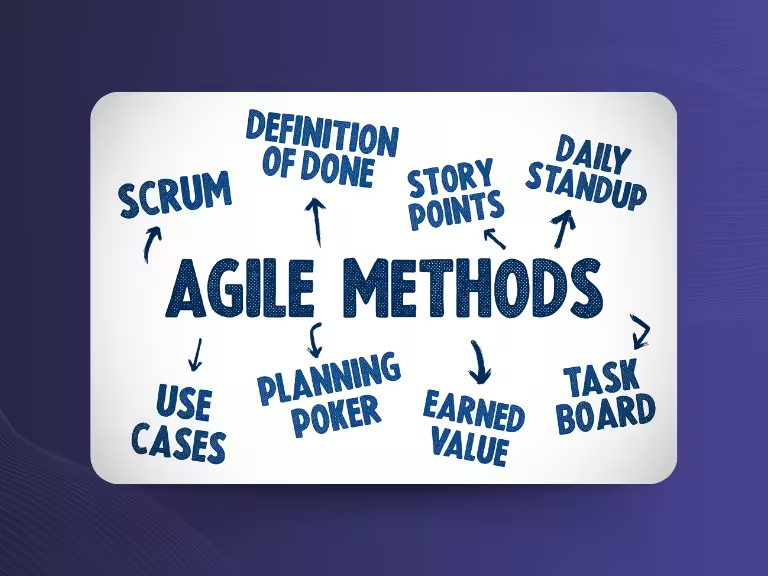Digitalization has fundamentally changed management – and artificial intelligence (AI) is at the center of this transformation. From automating time-consuming routine tasks to supporting complex strategic decisions: The
are diverse and can help companies of all sizes become more efficient, data-driven, and future-ready. As competitive pressure increases and markets change faster than ever, AI proves to be a decisive factor for sustainable business success.
Efficiency Enhancement and Automation of Management Processes
Automation of Repetitive Tasks
One of AI's greatest strengths lies in automating recurring management tasks. Instead of spending hours on manual report generation or data reconciliation, executives can rely on intelligent systems that complete these tasks precisely and in a fraction of the time. Modern AI tools for scheduling automatically coordinate meetings, consider preferences and availability, and optimize time usage for all participants.
Particularly in meeting documentation, significant efficiency gains are evident. AI meeting assistants like Sally can automatically transcribe conversations, summarize key insights, and derive actionable recommendations. This automation not only relieves the executive but also improves decision tracking and team communication.
Optimization of Internal Processes
Real-time data processing through AI revolutionizes how companies organize their internal processes. Intelligently prioritized tasks, automatic routing of requests, and reduction of manual duplicate work lead to noticeable productivity increases. Studies show that companies can reduce their process times by up to 40 percent through AI-driven process optimization, while simultaneously decreasing error rates.
The integration of AI into existing workflow systems enables early detection of bottlenecks and dynamic resource reallocation. This leads to more balanced workload distribution and reduces stress for both executives and employees.

Improved Decision-Making Through Data-Based Analysis
AI-Powered Data Analysis in Management
Modern managers face the daily challenge of filtering relevant information from vast amounts of data and making informed decisions. AI systems can fully leverage their strengths here: They collect, process, and interpret data from various sources in real-time, recognizing patterns and trends that would be barely perceptible to the human eye.
In financial and risk assessment, for example, AI algorithms analyze market data, customer behavior, and internal metrics to create precise predictive models. These support executives in evaluating investments, minimizing risks, and identifying opportunities in a timely manner.
From Data to Smart Strategy
AI's true strength lies not only in data collection but in transforming this information into concrete, actionable strategies. AI-based insights make decision-making processes more transparent and comprehensible – a crucial advantage in complex organizational structures.
The integration of such analysis results into planning cycles and meetings is simplified through specialized tools. An AI meeting assistant can, for example, automatically integrate relevant data and insights into meeting notes and ensure all participants are on the same information level. This leads to higher-quality discussions and ultimately more thoughtful strategic decisions.
Personalization and Optimization in Customer and Personnel Management
AI in Customer Support and Marketing
Customer expectations are continuously rising – and AI helps companies meet them. Intelligent chatbots and virtual assistants are now available around the clock, instantly answering standard inquiries and forwarding more complex problems to the right contact persons. This leads to significantly improved customer experience while simultaneously relieving support teams.
In marketing, AI enables unprecedented personalization. By analyzing customer behavior, preferences, and interaction patterns, companies can create tailored offers that increase conversion rates and strengthen customer loyalty. CRM systems with AI functions automatically identify the most promising leads and suggest optimal communication strategies.
Personnel Management with AI Support
Human resources particularly benefits from AI technologies. Automated application screening significantly accelerates recruitment processes while simultaneously improving candidate selection quality. AI systems analyze resumes, cover letters, and even video interviews to identify the most suitable candidates and reduce unconscious bias.
In personnel development, AI systems create individual learning paths and training recommendations based on each employee's strengths, weaknesses, and career goals. Predictive models can also forecast potential turnover and enable HR managers to proactively implement retention measures.

Challenges, Integration, and Sustainable Success of AI in Management
Data Protection and Ethical Aspects of AI Usage
With great power comes great responsibility – this particularly applies to AI usage in management. Data protection regulations must be strictly adhered to, especially when handling sensitive personnel and customer data. GDPR and other regulations set clear boundaries and require transparent processes.
Ethical considerations go beyond legal requirements. Fairness, transparency, and traceability of AI decisions are essential for employee and customer trust. Companies should develop clear guidelines that define when and how AI is used and ensure human control and responsibility are maintained.
Integration of AI into Existing Systems and Corporate Culture
The technical integration of AI solutions requires careful planning. Compatibility with existing systems, modularity for gradual implementation, and robust IT security are fundamental prerequisites. Simultaneously, the cultural aspect cannot be neglected: Change management, comprehensive training, and open communication are crucial for new technology acceptance.
Successful AI implementation requires interdisciplinary collaboration between IT, HR, and specialized departments. Only when all stakeholders understand AI's potential and limitations can the technology unfold its full potential.
Success Measurement and Continuous Optimization
AI projects require continuous monitoring and optimization. Relevant KPIs include efficiency improvements, cost savings, customer satisfaction, employee satisfaction, and return on investment (ROI) of AI initiatives. Regular evaluations help refine AI strategy and adapt to changing business requirements.
Long-term, AI should not be viewed as isolated technology but as an integral component of corporate strategy. This requires continuous competency development and an agile approach to new opportunities and challenges.

Conclusion – AI as the Key to Management's Future
The benefits of AI in management are clear: From automating repetitive tasks through data-based decision-making to personalizing customer and personnel management – AI opens new dimensions of efficiency and effectiveness. However, sustainable success requires more than just implementing new technologies.
Ethics, data protection, and a supportive corporate culture are the cornerstones of a successful AI strategy. Companies that consider these aspects from the beginning and understand AI as strategic transformation will realize the greatest benefits. The future of management lies in the intelligent partnership between human and machine – a combination that unites the best of both worlds: human creativity and empathy paired with AI's computational power and precision.

Test Meeting Transcription now!
We'll help you set everything up - just contact us via the form.
Test NowOr: Arrange a Demo Appointment




